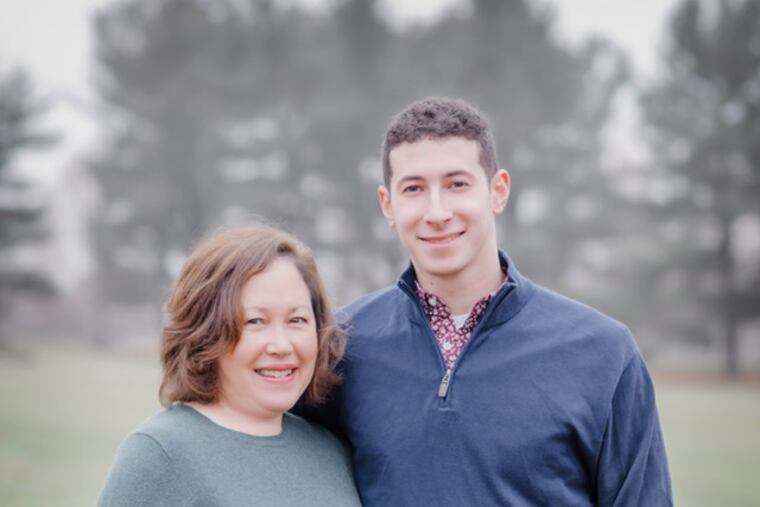Some universities should get a failing grade when it comes to the opioid crisis | Opinion
Julia DyReyes lost her son, a Temple student, to an opioid overdose. She outlines what universities can do to better help students in addiction.

Since 2018, Pennsylvania has been in a continuous state of emergency in the fight against heroin and opioid addiction.
On April 23, 2019, that state of emergency became my nightmare as my only son, Julian DyReyes-Kapp, died from an overdose while a student at Temple University. I had no idea that he had ever used opioids or heroin. I had no indication as a nurse that my son, who had been a star athlete and student in high school, was introduced to drugs.
After his death, I began pouring over texts, emails, and phone calls, looking for any way we could’ve known this was happening.
There were red flags on the part of Temple University, but nothing was done. This is my reality.
Julian’s first two years at Temple were uneventful. He was going to classes and getting decent grades. During his junior year, Julian was placed on academic probation and referred to Temple’s CARE Team. His grades had declined and professors noticed he had stopped going to classes. The CARE Team tried to reach out to him two times. He never responded. They took no further action and told me that “some students just don’t respond.”
During his junior year at Temple, at Julian’s off-campus residence and within Temple’s police jurisdiction, there were three overdoses at this residence in the fall semester. All three students were resuscitated. Julian was the fourth call from this residence in the spring and did not survive.
I learned that as a parent, I have no right to any information about my child while he is a student at a university as a result of the Family Educational Rights and Privacy Act (FERPA). The law provides that a university may notify parents when they are concerned for the safety of a child, but it is not obligated.
This is not unique to Temple. They followed the federal law. I have discovered that many institutions of higher education have similar programs in place. I believe there are opportunities for improvement. In light of parents’ limited access to critical information to intervene to try to save their children, universities must do more.
Many universities, including Temple, have a medical amnesty program encouraging students to call for medical help secondary to alcohol or drug overdose without fear of disciplinary action or parental notification. This program encourages reporting and hopefully saves lives.
However, there is much more that can be done.
Data consolidation. The medical amnesty program generates critical data that can prevent deaths, but it is not utilized. If there are multiple calls from the same house in the same semester, this is a red flag to intervene. The data needs to be monitored for patterns, location, and frequency. An example: while offering help, send a counselor to assess.
If the school had identified that residence as a concern, coupled with Julian being on the CARE Team and the professors’ concerns, this should have been a double red flag. If a university has a program to refer kids to a CARE Team because they are concerned, then they should not give up trying to reach them when they do not respond. This is unacceptable.
Transparency. There are some laws in place to protect students. The Clery Act requires universities to disclose the number of violent crimes on campus. Megan’s Law requires transparency around sex offenders. However, no law exists providing transparency around opioid overdoses and deaths to keep students safe. We must demand transparency.
Narcan. If there is any call for medical assistance as a result of an overdose, universities should leave Narcan (naloxone) behind at that residence. That should be standard practice.
» READ MORE: College campuses distribute condoms. Why not Narcan? | Opinion
I would do anything to have my son back. All I can do is to make sure other kids do not fall through the cracks and demand universities do better. We are in a state of emergency, and it’s time for universities to act like it.
Julia DyReyes is a nurse at Penn State Health Hershey Medical Center.